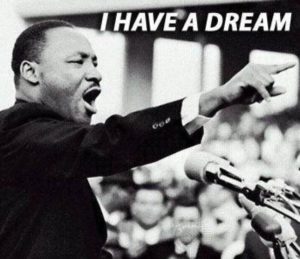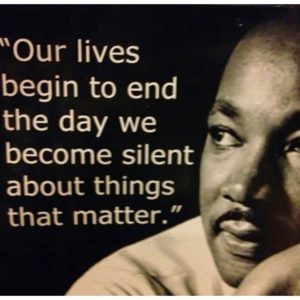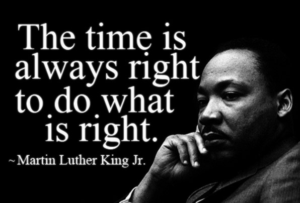Celebrating Dr. Martin Luther King, Jr. Day with a special history tribute
“I Have a Dream!”
 Today is a great day to remember some important history made by Dr. Martin Luther King, Jr. Let us look at his famous speech – “I have a dream today . . . that one day . . . little black boys and little black girls will be able to join hands with little white boys and little white girls as sisters and brothers. . . “I have a dream that my four little children will one day live in a nation where they will not be judged by the color of their skin, but by the content of their character.” Martin Luther King Jr., August 28, 1963
Today is a great day to remember some important history made by Dr. Martin Luther King, Jr. Let us look at his famous speech – “I have a dream today . . . that one day . . . little black boys and little black girls will be able to join hands with little white boys and little white girls as sisters and brothers. . . “I have a dream that my four little children will one day live in a nation where they will not be judged by the color of their skin, but by the content of their character.” Martin Luther King Jr., August 28, 1963
Let’s take a moment to examine the life of Dr. Martin Luther King, Jr. and the impact he had on equal rights in the United States. Born the son of a Black Baptist minister, Martin Luther King, Jr. (19291968) believed, like Mohandas “Mahatma” Gandhi, that the power of love was greater than the power of hate. His beliefs led to his own non-violent crusade against racial segregation in America.
His Early Life and Impact on Peace around the World
Growing up in Atlanta, Georgia during the 1930’s and 1940’s, King lived in a segregated society that believed that blacks were inferior to whites. While attending Morehouse College, an all-male black college, in Atlanta, Georgia, King heard Reverend Benjamin Mays speak on the idea that the black churches should be the ones to lead a movement of social change and end discrimination. He also attended a lecture about the life of Gandhi and was impressed by Gandhi’s philosophy of satyagraha, a philosophy and practice of non-violent resistance.
In 1954, the U.S. Supreme Court declared, in what would be the monumental Brown versus Board of Education ruling, that segregation in public schools was unconstitutional. Soon after, King became the pastor of the Dexter Avenue Baptist Church. Here, King urged his congregation to actively oppose segregation. He led a boycott, crippling Montgomery’s public transportation system. In 1956, the U.S. Supreme Court ruled that Alabama’s state and local laws requiring segregation on public transportation was unconstitutional.
King became a leading spokesman for civil rights in the United States. While his work was peaceful, King was arrested, and his life was threatened on several occasions. In April 1963, he was jailed after a demonstration. His “Letters from a Birmingham Jail” argued that everyone has “a moral responsibility to disobey unjust laws”. After many years of effort, President Lyndon B. Johnson signed the Civil Rights Act, making segregation a federal crime in July of 1964. At the age of 35, King was the youngest man to be awarded the Nobel Peace Prize.
Although Martin Luther King Jr. was a leader in promoting peace and equality, sadly, King was assassinated in 1968. In 1983, Congress set aside the third Monday in January as Martin Luther King Day.
King’s story of having a dream and working together peacefully is truly fitting with our Montessori Method of teaching and our Peace Education curriculum, and we embrace the values of equality, diversity and peaceful resolution to conflict at all times.


